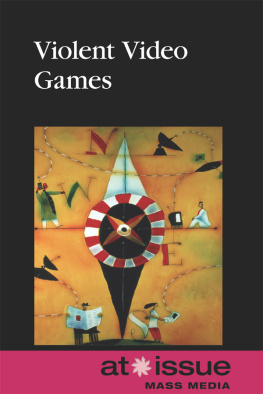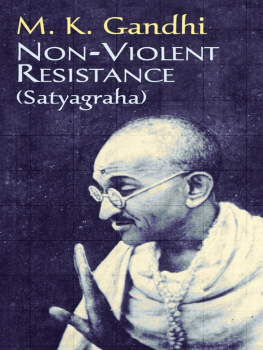For my friends and mentors, Robert and Mary Jo Nye.
ACKNOWLEDGMENTS
THE RESEARCH FOR THIS BOOK WAS ORIGINALLY FUNDED BY A COLLEGE of Liberal Arts Research Grant from Oregon State University. Thank you to the History Department chair at that time, Paul Farber, for supporting my application and my sabbatical time off from teaching, which I used to begin this project. The American Philosophical Society also supported my research with a small grant in 2011. I made great progress in my research while in residence as a visiting scholar at the Center for Latin American Studies at Stanford University on and off from 2008 to 2010. Thank you to Herbert Klein and Megan Gorman for your hospitality there and to Ben Vinson for initially introducing me to the Center faculty.
I appreciate the assistance of the staff at the Archivo General de la Nacin in Bogota, the Archivo General de Indias in Seville, and the Archivo Nacional in Madrid. I offer my warmest gratitude and affection to the distinguished historian padre Tulio Aristizbal of the San Pedro Claver Church and Museum in Cartagena, as well as to the other kind, learned, and hospitable padres of the Society of Jesus who reside there.
Many thanks to Kristen Block, Rebecca Earle, and Linda Curcio Nagy for their scholarly support and collegial input on this project. Kristen encouraged this book idea in its infancy at the Latin American Studies Association conference in Rio in 2009. Linda participated with me in panels at Rocky Mountain Conference of Latin American Studies and LASA while I worked on the project. Rebecca kindly read a chapter in one of her many areas of expertise, the history of clothing in the Viceroyalties. Thanks to Karen Melvin for inviting me to air some initial ideas on this project to the History Department at Bates College. Michelle McKinley also gave me two opportunities to present at the University of Oregon at conferences supported by the Center for Latino and Latin American Studies, as well as included me in panels at RMCLAS. I appreciate her superb scholarship and personal warmth and kindness. Rachel Moore quickly provided a great translation for a difficult eighteenth-century note. Dain Borges, George Reid Andrews, and Ramon Gutierrez kindly hosted my presentation of early analysis of this material at an event on Race and Sexuality in Latin America at the University of Chicago. Frank Proctor helped me organize my ideas by offering me the opportunity to write an article on sexuality and witchcraft for History Compass.
Thank you to my Oregon State University students in HST 350, HST 310, and HST 407 for reading and commenting on the rough drafts of these chapters. Members of the History Faculty at Oregon State University, including Anita Guerrini, Chris Nichols, Ben Mutschler, Paul Kopperman, and Marisa Chappell, were kind enough to read and closely critique a chapter of this book in the fall of 2012. My colleague William Husband provided an especially helpful analysis, although all of the history faculty in attendance offered useful and challenging advice on improving . Thank you to Robert Peckyno for your encouraging marketing ideas. Robert and Mary Jo Nye carefully read and edited several chapters. I would not have written this book or known anything about honor and violence if it had not been for Bob Nyes outstanding mentorship over the last ten years. I hope that my scholarly and generous colleagues can take some pride in their contributions to the finished product.
Kris Lane, Kathryn Sloane, and two anonymous readers provided insightful, helpful comments and close readings of very rough drafts of this book. Kris Lane made an extra effort to reread the introduction and greatly increased my confidence in the final result. Although their input significantly improved the final product, I am responsible for any remaining errors.
I gratefully acknowledge the amazing patience and fantastic support I enjoyed from University of New Mexico Presss editor-in-chief, W. Clark Whitehorn.
I remain grateful to Sarah Cline and William B. Taylor for their guidance during my time as a graduate student in history. James Lockhart has also been a scholarly inspiration and provided specific advice regarding personal letters quoted in this book.
Kasia Cichowicz, I appreciate your humor, irrepressible enthusiasm, and positive predictions for this book. Collin English, I hope there will be many more intellectually stimulating discussions to come. I am so grateful to Ricardo Raul Salazar Rey for his unstinting friendship, constant advice, and humor over the past few years. Martin Nesvig has also extended his welcome friendship and perceptive historical expertise. Brent Ayrey helped me find the records of the criminal cases at the heart of this book in Bogota almost a decade ago. Thank you to my parents, Joan and Jim von Germeten, and my sister, Ann von Germeten, for tolerantly reading early chapter drafts. I appreciate how Matthew Stinger took an interest in the topic of love magic and lessened my anxiety in the final phases of this project.
To the sweetest, kindest, funniest lady I know, Inez: I am looking forward to our conversations about history, life, and scholarship in the future.
Doa Lorenzana, doa Manuela, Paula, and doa Luisa have become my intellectual and emotional comadres. Although William Shakespeare never visited the sixteenth-century Caribbean, his works communicate an understanding of violent passions, like the ones that Cartagena provoked in the seventeenth century, and continue to inspire in the present day. Whenever you are in this city, you forget at your peril that:
These violent delights have violent ends
And in their triumph die, like fire and powder,
Which as they kiss consume. The sweetest honey
Is loathsome in its own deliciousness
And in the taste confounds the appetite.
Therefore love moderately; long love doth so;
Too swift arrives as tardy as too slow.
(Romeo and Juliet, act 2, scene 6)














